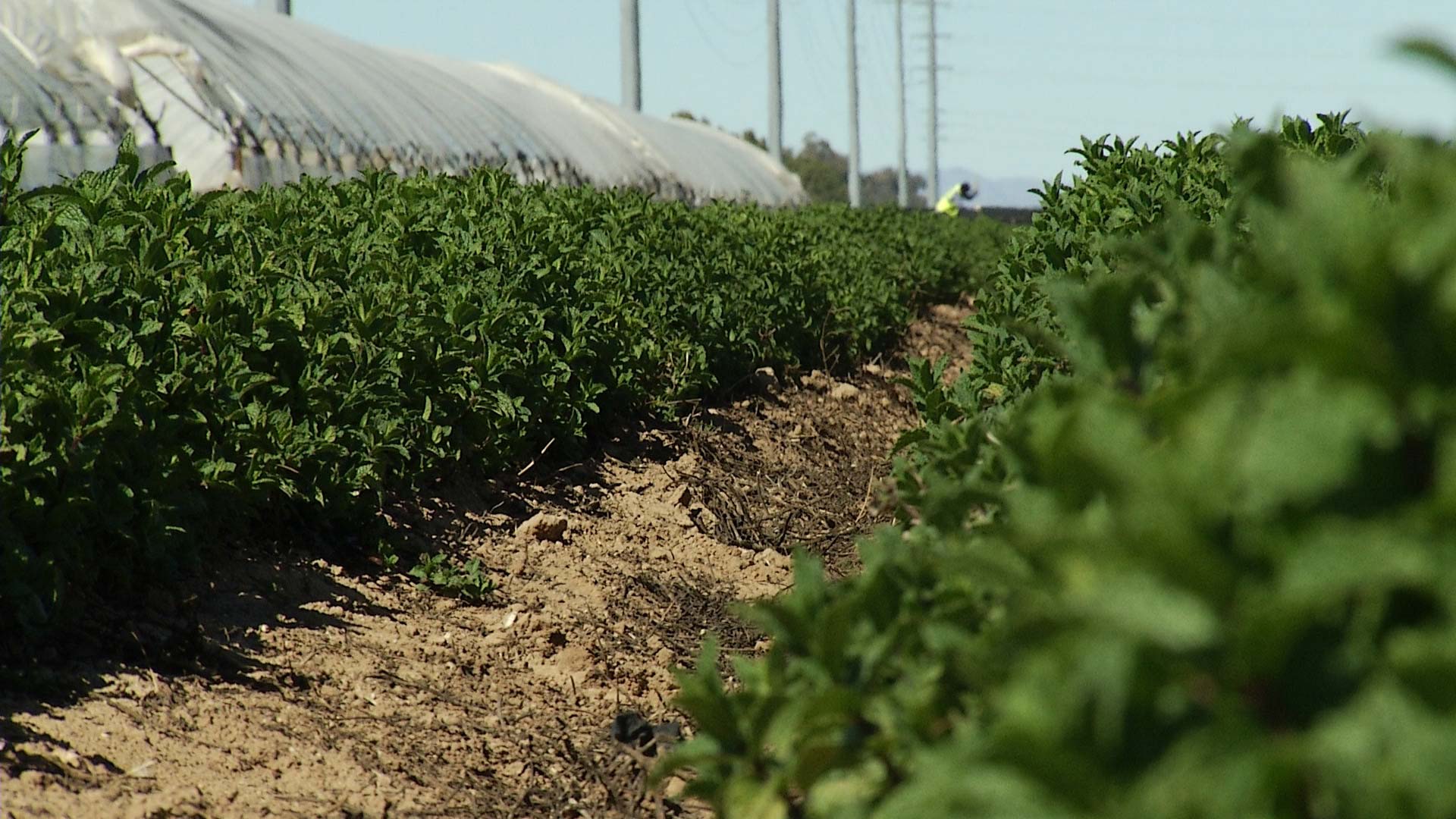 A farm in Arizona.
A farm in Arizona.
U.S. Department of Agriculture Under Secretary Alexis Taylor visited Tucson Friday morning to speak with producers and tribal agribusinesses about different ways the department can assist tribal communities, including a new initiative meant to promote specialty crops for exportation.
“Much of what (Arizona is) doing is around climate resiliency,” she said. “We heard from indigenous producers and indigenous agribusinesses talking about some of their traditional farming practices and products and how they are drought tolerant, and how we're learning more and more about them.”
The Assisting Specialty Crop Exports initiative, ASCE, breaks down non-tariff trade barriers that may hinder the export of specialty crops, like tree nuts and horticultural crops, creating new international markets while solidifying existing ones. Taylor hopes that Friday’s visit will help tribal producers in their journey towards better promoting their crops and eventually bring those products internationally.
“Our indigenous businesses and tribal-owned agricultural businesses are not utilizing maybe some of those export markets the way others are,” Taylor said.
She highlighted a historic USDA trade mission to Canada that showcased indigenous agriculture and food products. During that visit to Vancouver, 14 tribal-owned and Native Hawaiian food and agriculture businesses met with buyers. She projects that $1 million from a year’s worth of sales will come out of that trade mission.
“We are looking at USDA to fundamentally change how we support Indian country in the United States and help support these tribal nations and communities and agribusinesses tap into programs and services that we offer, both here domestically, but also from the export picture as well.”
When it comes to Arizona, she says it is the perfect landscape to hold community partnership conversations as they look towards diversifying who exports, what is exported as well as market access.
Friday’s meeting allowed Arizona’s tribal agribusinesses to learn about what came from the visit and how they may be able to utilize USDA’s resources better. CEO of Arizona’s Department of Agriculture Paul Brierley says that there is a low utilization rate from tribal communities when it comes to USDA programs. In his view, one of the barriers is not knowing the programs exist.
“How do you help people to actually do the grants, know that the grants…are a good fit for them, and then actually help them do the grant proposals and manage those grants?” Brierly said. “It's not just funding for a program, but it's also funding to help with technical assistance. How do you actually utilize the program?”
Taylor says another barrier is the difference between tribal and federal governments.
For example, indigenous foods are not built into school nutrition programs. Taylor says the department is now working to shift access to include products like bison in schools based on the needs of tribal communities.
“We have had to fundamentally think about our programs and services that are built a certain way for a certain type of customer to see, can we do this differently to work better for our tribal communities and our tribal nations?”

By submitting your comments, you hereby give AZPM the right to post your comments and potentially use them in any other form of media operated by this institution.